Filed under: Canadian Tire Fire, Featured
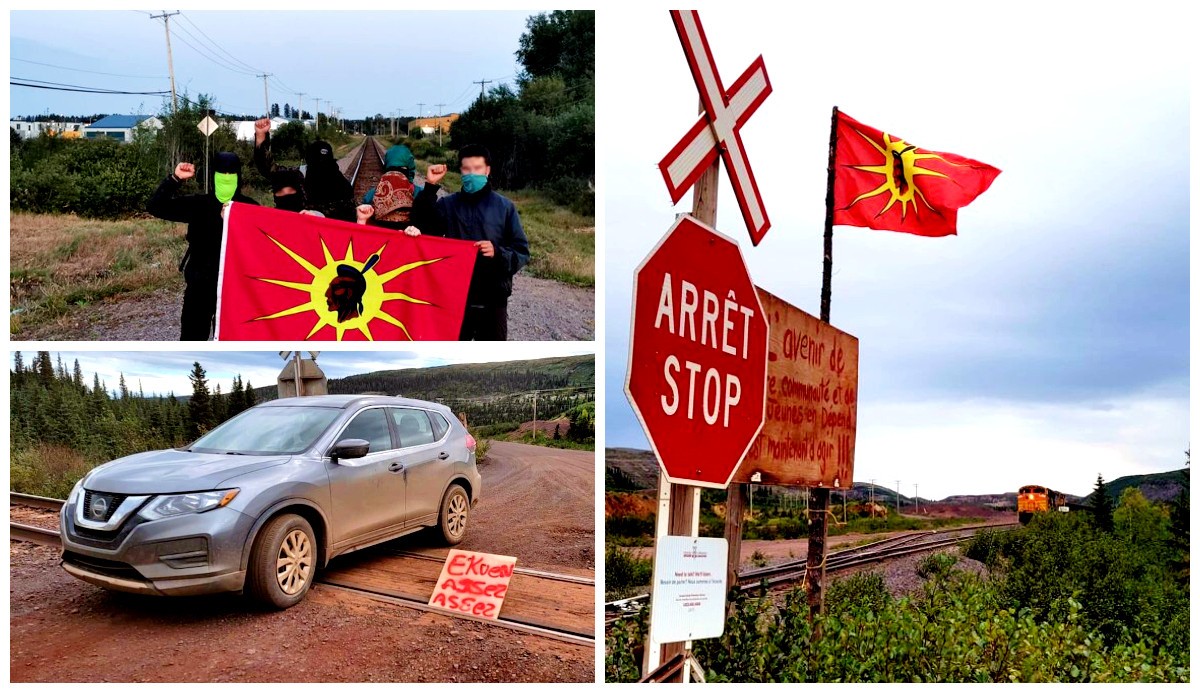
1492 Land Back Lane is due back in court on September 12th and 13th for hearings during which Haldimand County and failed developer Foxgate are asking for a new permanent injunction against the land defenders. While a first permanent injunction was struck down in the Court of Appeals, the request for this second one is being backed by the province of Ontario, who are intervening on behalf of Foxgate. Meanwhile, the land continues to be occupied by Haudenosaunee from Six Nations, more than two years after the struggle against the housing development began!
Fuck injunctions on Native Land #nojurisdiction #fuckthecrown https://t.co/sjTi6872Ww
— Kanahus Manuel (@KanahusFreedom) September 12, 2022
Over the labour day weekend, news emerged from Saskatchewan that 10 people had been killed and 18 injured in a string of stabbings on James Smith Cree Nation and the nearby village of Weldon. Many details about the stabbings remain unclear. For outsiders to the community, particularly settlers, any response should focus on supporting the James Smith Cree Nation as they grieve, and listening to the conclusions and needs of the community rather than imposing outside solutions. In the days following the stabbings, local leadership has asked for space for their community as they find themselves under intense media scrutiny. They also spoke about the need for Provincial and Federal funding for on-reserve addictions treatment centres. Ongoing solidarity with Indigenous nations means fighting colonialism and the intentional neglect and ongoing genocide of Indigenous peoples every day, not just in moments of acute crisis.
This week we cover the campaign for a federal regularization process for migrants, police violence, and rail blockades in Schefferville and Saugenay.
Read on for the full stories!
Fighting For Status for All
Canada’s federal government is in the process of developing a regularization program which could grant permanent resident status to undocumented migrants. Migrant justice organizers have been attentive to the process and engaging in various ways, all while conscious of the lack of clarity around how many of the 500,000+ undocumented people in Canada would be included in the program. A regularization program could result in tangible positive changes in the lives of many undocumented people in Canada. Individuals would have the potential to access housing, medical care, and education – basic life necessities that are unavailable to a large number of people living underground in the country right now.
In the words of Solidarity Across Borders and the Immigrant Workers Centre:
Undocumented people, migrant workers and refugees are exploited in substandard working conditions, because regressive immigration and labour laws restrict their agency and leave them open to abuse. Lack of permanent resident status makes it difficult, and often impossible, for migrants to speak up for their rights or access services, including those they may be eligible for, because of a well-founded fear of reprisals, termination, eviction and deportation. Migrants experience insecure housing, abuse at work, poverty and fear. The uncertainty about the future, constant stress of making ends meet, and the risk of detention and deportation negatively impacts their health.
The Migrant Rights Network has called for solidarity actions in the lead up to and on September 18th, the day before the return of Canadian Parliament. You can find a list of events, and maybe some in your area on the Migrant Rights Network website. The intention of their campaign is to build a broad base of support for the demand that all undocumented people be included in the program, with no exceptions, rather than acceptance of an incomplete program which will leave out and further marginalize some undocumented people (for example, those currently held in migrant detention, or those charged with a crime, those who have not been in the country as long, etc).
As anarchists we know that while borders, racism, and xenophobia exist, restrictions on movement and violence against migrants will continue. A new migrant prison is being completed in Quebec, people are still being turned away at the border or forced to make risky travel decisions to come across irregularly. In Quebec, xenophobia and nationalism are being mobilized shamelessly by current Premier Francois Legault while he is on the provincial campaign trail for re-election. He recently gave a half-assed apology for a speech in which he cited the threats of “extremism,” “violence,” and the need to protect “Quebec’s way of life” as reasons to block an increase in the number of migrants to the province. Elsewhere in Canada, other forms of far right, conspiratorial, and even centrist racism continue to swirl and gain momentum.
A regularization program, while it could have tangible positive impacts on the lives of undocumented migrants, will not end the violence of the border, nor a state and global system that require it. While we hope for a positive outcome from the campaign, history shows us that asking for things from the Canadian government usually ends in disappointment. This is not by accident – the Canadian economy relies on the precarity created by temporary status and the threat of losing it. The country’s modern deportation system is equipped to enforce that migrants not stay past the end of their temporary work permits, with the threat of deportation enforcing an acceptance of labour exploitation which maintains the flow of wealth from the global south to the global north. Meanwhile, political and economic interests are at play when Canada participates in coups, drops bombs, and causes environmental destruction and displacement through mining.
This reality reminds us all that it is not in the material interests of the State to shift the foundations of a fundamentally racist system unless forced to. We hope for a different end to this story, but no matter the conclusion of the government’s regularization program, the fight will continue for dignity and safety of migrants and freedom of movement for all.
News In Police Violence
On Labour Day, folks gathered in downtown Vancouver to remember those who have been killed by the Vancouver Police. A banner was hung with the names of 42 individuals who have been killed over the last 34 years, though many more have died whose names are not known. The significance of the labour day action was in part to highlight that police do not belong in the labour movement. Police aren’t workers, they are enemies of the working class, of poor people, and of self-organized people everywhere. Throughout their existence in so-called Canada they have been brought in to suppress powerful labour movements – the Winnipeg General Strike being just one historic example. More broadly, their role is to uphold the status quo – police in labour have no interest in improving working and living conditions for all.
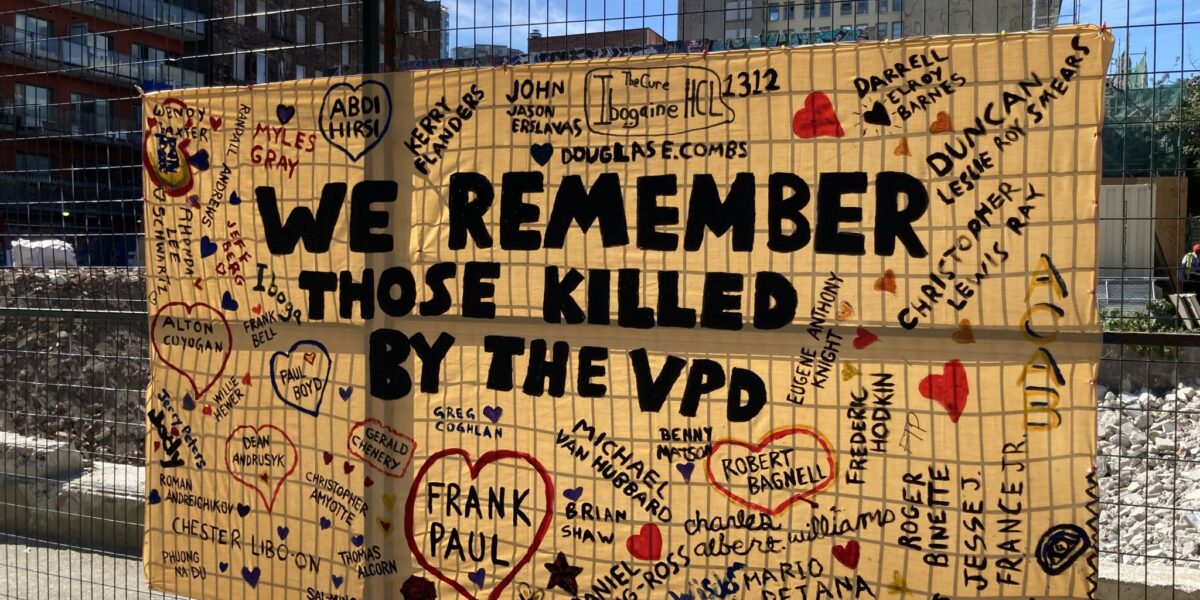
Last weekend in Smithers, BC, Barrett Jack, a Wet’suwet’en man died in RCMP custody. He was being held in the RCMP Smithers detachment, and police claim he died by suicide. No death in prison can be separated from the prison itself, and this death must be understood as one inflicted by the prison system. His family and community held a vigil outside the detachment on September 7th, and are still demanding answers around his death.
Finally, the Media Co-op has released their monthly summary of police-involved deaths in Canada for August 2022. In August, at least 8 people were shot and killed by police, all in different police jurisdictions. Three people were killed in vehicle pursuits, and one person allegedly took their life during a police interaction while in crisis. The fact remains: the police are a deadly force that ultimately make our communities far less safe.
Rail Blockades in Schefferville and Saugenay
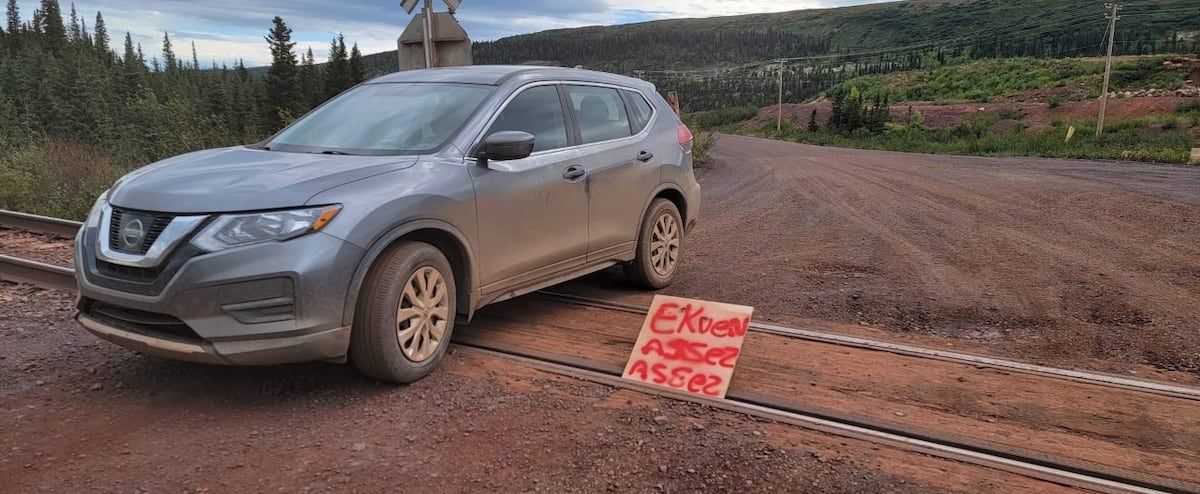
Source: Naskapi News
Innu demonstrators in Schefferville, Northern Quebec are holding down a rail blockade to protest corruption and fraud in their local band council. A group called the First People’s Rights Committee has taken a variety of actions against the band council, including pursuing legal action against the band council and directly blocking the rail line. They allege that the band council accepted close to $2 million from the Iron Ore Company of Canada without the knowledge of community members. The blockade targeted a rail line used by Tata Steel, another company conducting mining in the area.
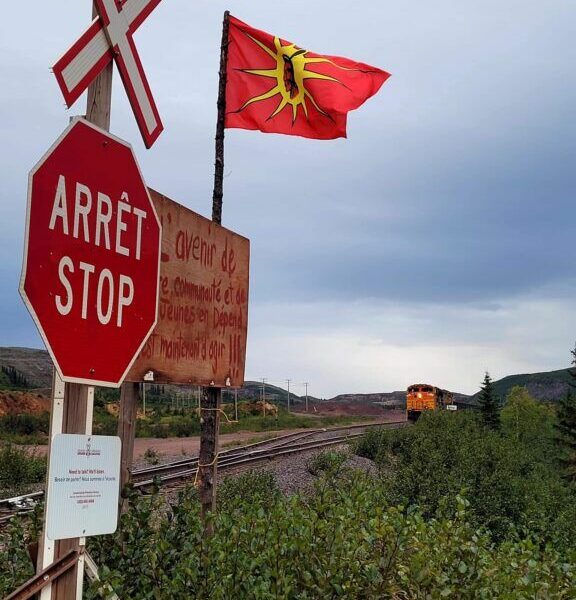
Source: Naskapi News
A crew in Saugenay, QC, responded with their own solidarity blockade. In a communique, they stated:
A collective of Indigenous and settler activists blocked the Roberval-Saguenay railroad belonging to the multinational corporation Rio Tinto in solidarity with the National Committee for First Peoples’ Rights which is paralyzing for a third consecutive day the railroad line located at the border of Labrador and Schefferville, which is used by the mining company Tata Steel. The solidarity blockade lasted one hour …
Today’s action by the collective in Saguenay is a reminder that the Iron Ore Company of Canada (IOC) and the band councils, which are nothing more than organizations of colonial assimilation set up by the federal government, are not masters of unceded Nitassinan. Agreements signed illegally, by extortion, without the consent of the entire Innuat people, will never again be tolerated. The mining companies have been destroying and polluting the territory of the Innuat for several decades. Our action is a direct act of ancestral sovereignty of the First Peoples.
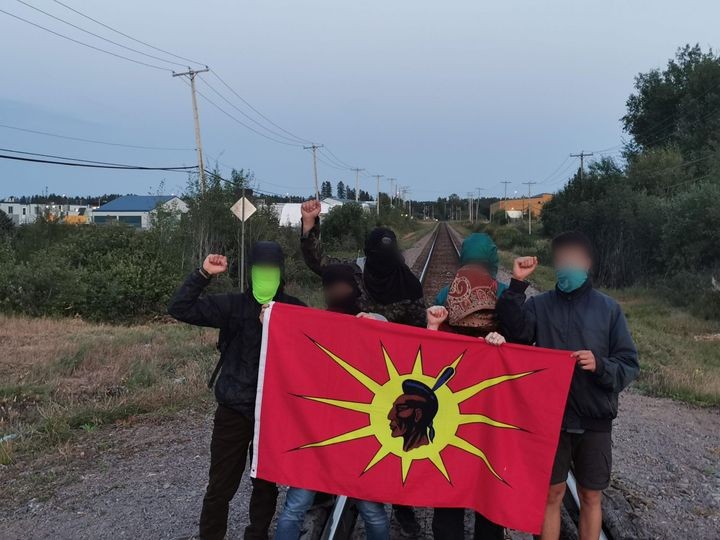
Source: Naskapi News
Follow Canadian Tire Fire on Twitter here.





